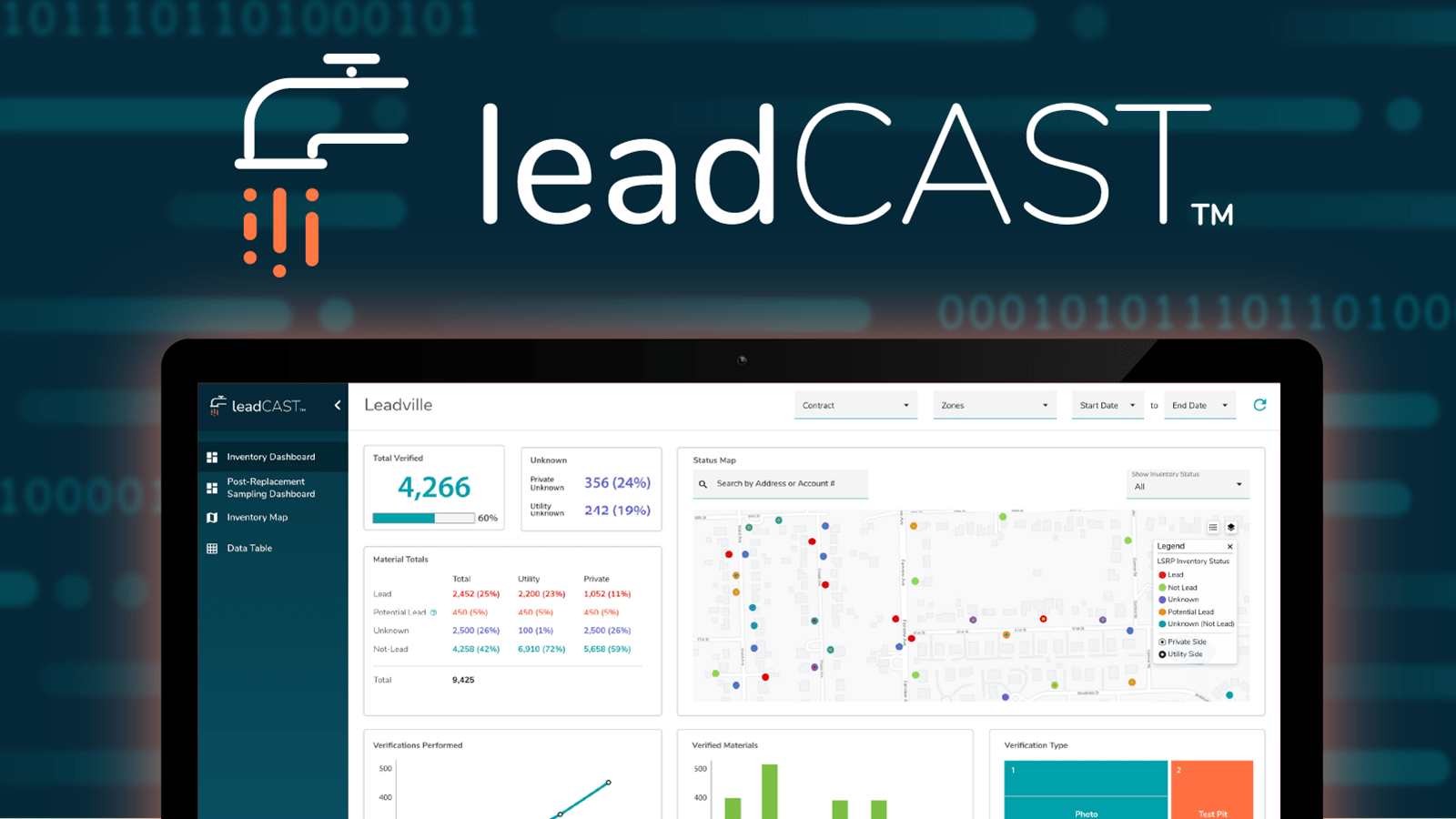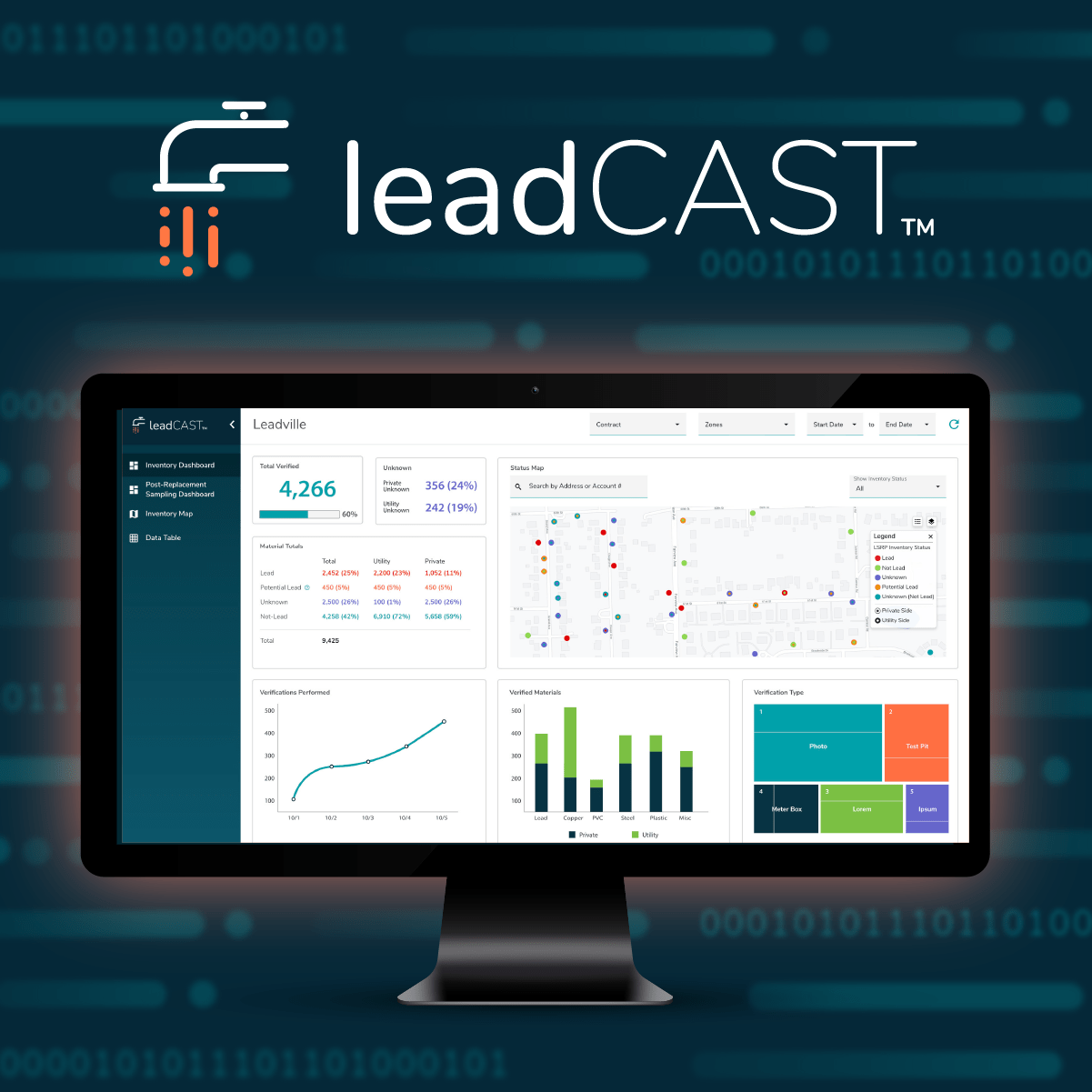What states accept predictive modeling for inventory development?
Does Your State Accept Predictive Modeling for Inventory Development?
Confirming service line materials throughout an entire system requires field verification programs, which take time and resources to complete. However, predictive modeling focuses leveraging information collected in the field to understand patterns for the rest of the system and predict the material of unknown services.
To have an accurate and reliable model, you need a solid team: water system engineers, GIS pros, data scientists, and computer scientists create an all-star predictive modeling lineup. Trinnex’s leadCAST Predict has assembled a team to help water systems accelerate the classification of unknown service lines and prioritize field verifications through advanced material predictions powered by machine learning and other predictive modeling methods.
Predictive modeling is ever-evolving, and some state authorities have provided guidelines allowing its use to accelerate the inventory process.
Trinnex and CDM Smith are in discussions with the EPA and state regulatory agencies across the country to share best practices and provide education around predictive modeling for service line inventory development. If you are not sure whether your state will accept predictive modeling, reach out to us! If we haven't already, we'd be happy to engage with your state regulatory agency.


Predictive modeling (including machine learning) can help with inventory development through iterative, data-driven processes.
Check out the map below to see what your state permits:

Yes
Arizona
Colorado
Delaware
Indiana
Michigan
New Jersey
Ohio
Oregon
Pennsylvania
Tennessee
Pending Federal guidance
Minnesota
Missouri
Texas
Yes, case-by-case
Alabama
Arkansas
California
Connecticut
Georgia
Kansas
Kentucky
Louisiana
Maine
Maryland
Massachusetts
Nevada
New York
North Carolina
North Dakota
South Carolina
Utah
Washington
Virginia







